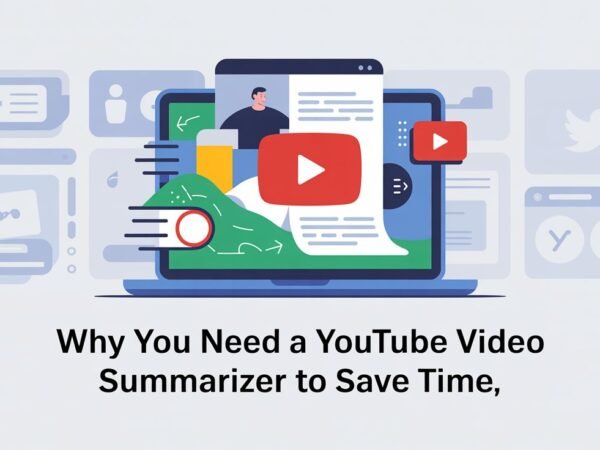In today’s highly competitive digital landscape, getting on the first page of Google search results is a top priority for businesses, content creators, and influencers. Achieving this can significantly boost organic traffic, enhance brand visibility, and, ultimately, lead to greater success. An SEO expert, David Aziz has developed a comprehensive approach to securing top rankings on Google. In this article, we will explore the essential strategies outlined by David Aziz that can help you climb to the top of Google’s search results.
Introduction to First-Page SEO
Ranking on Google’s first page is not just a goal; it’s a necessity. Data shows that more than 90% of users never scroll past the first page of search results. Therefore, you lose many potential visitors if your website does not appear in these coveted spots. The strategies that David Aziz advocates focus on thorough keyword research, content optimization, technical SEO, and a strong backlink profile. These methods are crucial for boosting your site’s visibility and overall authority in the eyes of Google.
Keyword Research and Optimization
Identifying High-Value Keywords
The cornerstone of any successful SEO strategy is effective keyword research. David Aziz emphasizes the importance of identifying high-value keywords—terms your target audience is likely searching for but are not overly competitive. Tools like Google Keyword Planner, Ahrefs, and SEMrush can help you find high-traffic keywords with relatively low competition.
For instance, targeting long-tail keywords, such as “how to get on the first page of Google search David Aziz,” rather than just “SEO,” can yield better results. Long-tail keywords are more specific and often have lower competition, making them easier to rank for. These keywords often have higher conversion rates because they reflect a more targeted search intent.
Competitor Analysis
Another crucial element in keyword research is analyzing your competitors. By understanding which keywords they are ranking for, you can uncover opportunities that they might be missing. David Aziz suggests using tools like Moz and SEMrush to analyze competitor keywords, content gaps, and backlink profiles. This analysis allows you to create a targeted SEO strategy focusing on the keywords your competitors may overlook.
Content Creation Strategy
Crafting High-Quality, SEO-Optimized Content
Once you’ve identified the right keywords, the next step is to create high-quality content that satisfies both users and search engines. Google rewards content that provides value and relevance and answers the user’s intent. David Aziz emphasizes the importance of structuring your content with relevant headings, such as H1, H2, and H3 tags, that incorporate your focus keywords.
For example, if your focus keyword is “how to get on the first page of Google search David Aziz,” it should naturally appear in the main heading (H1) and throughout the content. Avoid keyword stuffing, which can result in penalties from Google. Instead, focus on providing comprehensive and valuable information that satisfies the reader’s search intent.
Engaging Formats for Higher Retention
David Aziz also recommends using a variety of content formats to keep readers engaged. This could include blog posts, videos, infographics, or podcasts, depending on what is most relevant to your audience. Engaging and valuable content keeps users on your site longer and increases the chances of social sharing and backlinks, which can further improve your SEO.
On-Page SEO Techniques
Title Tags and Meta Descriptions
Title tags and meta descriptions are critical elements of on-page SEO. They are the first things users see in search results, so they must be compelling and optimized. David Aziz recommends including your primary keyword in the title tag and meta description. Keep title tags under 60 characters and meta descriptions around 160 characters. These concise yet descriptive elements help Google and users understand what your page is about.
For example, if you are targeting “how to get on first page of Google search David Aziz,” your title tag might be: “Proven Tips: How to Get on First Page of Google Search David Aziz.” The meta description could be: “Learn expert strategies from David Aziz to rank on Google’s first page, including keyword research, on-page SEO, and backlink building.”
Optimizing URL Structures
Short, descriptive URLs that include your focus keyword are another important factor in on-page SEO. David Aziz advises keeping URLs clean and easy to understand for users and search engines. For instance, an optimized URL for this topic might look like: www.yoursite.com/get-on-first-page-google-david-aziz.
Internal and External Linking
Internal linking is crucial for helping users and search engines navigate your site. David Aziz recommends strategically placing internal links to important pages on your site. External linking, particularly to high-authority websites, signals to Google that your content is credible. Ensure these links are relevant to your topic and offer value to your readers.
Technical SEO Improvements
Mobile Optimization
With more than half of web traffic from mobile devices, mobile optimization is non-negotiable. Google uses mobile-first indexing, meaning the mobile version of your site is the primary version that gets indexed and ranked. David Aziz stresses the importance of having a responsive design that adapts to different screen sizes without sacrificing user experience.
Site Speed Optimization
Page speed is a significant ranking factor for Google. Slow-loading sites result in higher bounce rates and poor user experience. David Aziz recommends compressing images, enabling browser caching, and using a content delivery network (CDN) to improve your site’s speed. Tools like Google’s PageSpeed Insights can help you identify and fix speed issues on your site.
Structured Data Implementation
Implementing structured data, or schema markup, can help search engines understand your content better and increase the chances of appearing in rich snippets. These enhanced search results provide additional information and can improve your click-through rate. David Aziz encourages using schema to boost your site’s visibility in search results.
Building High-Quality Backlinks
Importance of Authority Links
Backlinks from reputable and relevant websites are among the most powerful signals for ranking higher on Google. David Aziz stresses the importance of quality over quantity when building backlinks. A few links from authoritative sites in your niche can significantly improve your ranking.
Guest Posting and Collaboration
One effective strategy for building backlinks is through guest posting. By writing high-quality content for other reputable sites, you can earn backlinks that drive traffic and improve your SEO. David Aziz recommends targeting industry-relevant blogs and publications to maximize the impact of your guest posts.
Leveraging Social Media
Social media can also influence your backlink strategy. Sharing your content on platforms like Twitter, LinkedIn, and Facebook increases its likelihood of being shared, thus attracting natural backlinks. While social signals are not direct ranking factors, they can indirectly influence your SEO by boosting content visibility.
Monitoring and Adaptation
Using SEO Analytics Tools
SEO is not a set-it-and-forget-it strategy. Regular monitoring is essential for tracking progress and identifying areas for improvement. David Aziz recommends using tools like Google Analytics and Google Search Console to monitor your site’s performance, track keyword rankings, and identify any technical issues hindering your SEO efforts.
Adapting to Algorithm Changes
Google regularly updates its algorithm, which can affect your rankings. It’s important to stay informed about these changes and adjust your SEO strategy accordingly. David Aziz suggests reviewing Google’s updates and making necessary tweaks to your content, backlinks, and technical SEO to ensure your site remains optimized for search engines.
Conclusion
Ranking on the first page of Google is a long-term process that requires a strategic approach and ongoing effort. David Aziz’s proven methods, which include thorough keyword research, high-quality content creation, technical SEO improvements, and building high-quality backlinks, provide a clear roadmap for success. By following these steps and consistently monitoring your site’s performance, you can improve your chances of securing a top spot on Google’s search results, driving more organic traffic, and achieving long-term growth.
Patience and adaptability are key in the ever-evolving SEO world. By committing to these best practices, you’ll be well on your way to achieving that coveted first-page ranking.
Do Read: The Essential Guide to Key Coding Tools for PDF Modification













